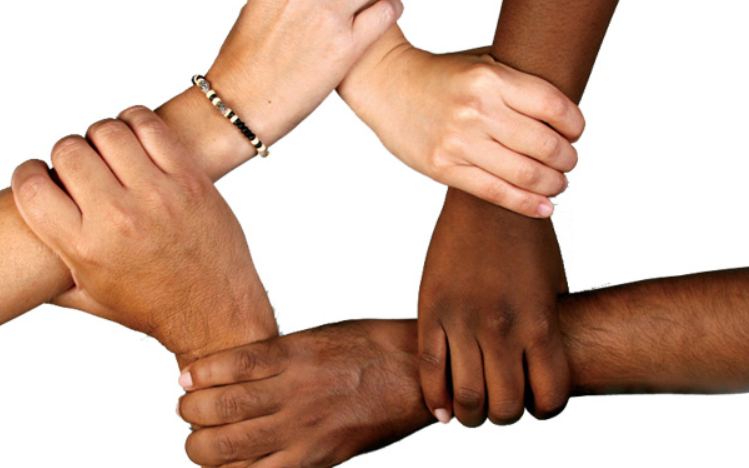On “cindy” in orange below:
A: cindy
B: candy
Don’t forget to put Sapiens in the Works Cited. Even though you’re not quoting him directly, you are referring to his ideas. And, yes, Sapiens is a book and should be in italics, not quotes. The chapter “The Legend of Peugeot” should appear in quotes, if used.
Paragraph 2: “Researchers theorize that” — think critically about what to include in a quote. Is the point that the article claims that researchers theorize an idea? Or is the point the idea itself? In other words, do you lose anything meaningful by taking out “Researchers theorize that”?
Yuval Harari is a macro-historian. And he is the best-selling author of “Sapiens” and “Homo Deus.” Also, he is one of the world’s most innovative and exciting thinkers. He believes that gossip is the glue of the whole society, but in Western civilization, gossip was regarded as a bad behavior and also very evil. From this we can see that whether gossip is good or bad has always been a controversial issue. Some people disapprove of gossip. They define gossip as rumors or talk about other people’s personal things. However, some people think that gossip is only a way to describe the normal life and development of others. Since ancient times, gossip has been opposed and disapproved by most people. But is gossip really so terrible? In fact, gossip can not only help people improve themselves and understand social norms, but also bring people closer to each other, thereby increasing social cohesion,
First of all, gossip is a tool to help people better understand social norms and improve themselves. There is no doubt that human beings like gossip, that is, to discuss or hear stories about other people. According to the article “Gossip: good or bad,” “Researchers theorize that life in small tribal groups may have forced our ancestors to adapt and gain some pretty sophisticated social intelligence.” So in order to live better in small groups, we must know each other, who we can trust or who we should be wary of or even away from. This is only the reason why people first liked gossip. In fact, the benefits of gossip are far more than that. In the article “Why Gossip Is Not All Bad,” the author asks the reader to imagine that he was watching three videos with two strangers. In the first video, a person casually throws an empty drink can on the ground; in the second video, a person sees an empty drink can on the ground but walks around it directly; and in the third video, a person sees a drink can and picks it up and throws it into the trash can. After watching the video, the author let the three people who watched the video before talk about gossip freely (Jetten). At this time, something interesting happened. The more gossip, the more obvious it was that the behaviors in the first and second videos were wrong. Therefore, g ossip helps people to understand the correct norms of the current society, so as to understand the whole social group and society, and help those who have made mistakes realize that their behavior is incorrect and maybe want to correct it. After all, no one wants to be the object of criticism in other people’s gossip. Therefore, gossip is actually a learning opportunity to know whether someone’s behavior is right or wrong, and how they do such a right or wrong thing. Then people can take this as a precept and learn from it. Human have to survive in society all their lives, and they have to learn how to get along with people all the time. They can regard gossip as a reference so it is easier to integrate into the large groups of society.
ossip helps people to understand the correct norms of the current society, so as to understand the whole social group and society, and help those who have made mistakes realize that their behavior is incorrect and maybe want to correct it. After all, no one wants to be the object of criticism in other people’s gossip. Therefore, gossip is actually a learning opportunity to know whether someone’s behavior is right or wrong, and how they do such a right or wrong thing. Then people can take this as a precept and learn from it. Human have to survive in society all their lives, and they have to learn how to get along with people all the time. They can regard gossip as a reference so it is easier to integrate into the large groups of society.
 Not only helping people better understand social norms and improving themselves, gossip can also bring people more closer and then increasing social cohesion. Almost every day, human beings talk about all kinds of gossip with different objects. They will gradually find the person who have the same opinions or views in many things. And then they may have the opportunity to be friends or cooperate well with each other. What’s more, as Harari said, “gossip is the social glue that allowed a foundational stage of human expansion.” For example, businesses rely on gossip to build their reputation. I have a good friend who runs a shop selling her hand-made Niuzha candy and it tastes really good. When I chatted with another friend one day, I recommended the store to her. Gradually, more and more people went to my friend’s store to buy Niuzha candy, and both of them have the same reason:“ I heard that the Niuzha cindy sold in this store was delicious!” As can be seen from this example, it is because people like to discuss gossip that the reputation and popularity of the store can be enhanced. Similarly, if a store’s businessmen always cheat consumers, gossip can also help more people avoid going to the store to spend, so that more people are not cheated. In our big society, gossip can better describe the actual situation of an enterprise or a person or thing. In short, the gossip can actually be used as a carrier of social information and help people become more closer.
Not only helping people better understand social norms and improving themselves, gossip can also bring people more closer and then increasing social cohesion. Almost every day, human beings talk about all kinds of gossip with different objects. They will gradually find the person who have the same opinions or views in many things. And then they may have the opportunity to be friends or cooperate well with each other. What’s more, as Harari said, “gossip is the social glue that allowed a foundational stage of human expansion.” For example, businesses rely on gossip to build their reputation. I have a good friend who runs a shop selling her hand-made Niuzha candy and it tastes really good. When I chatted with another friend one day, I recommended the store to her. Gradually, more and more people went to my friend’s store to buy Niuzha candy, and both of them have the same reason:“ I heard that the Niuzha cindy sold in this store was delicious!” As can be seen from this example, it is because people like to discuss gossip that the reputation and popularity of the store can be enhanced. Similarly, if a store’s businessmen always cheat consumers, gossip can also help more people avoid going to the store to spend, so that more people are not cheated. In our big society, gossip can better describe the actual situation of an enterprise or a person or thing. In short, the gossip can actually be used as a carrier of social information and help people become more closer.
However, some people often say that gossip sometimes leads to bad results, because it is not true, it comes from someone’s fiction. I admit, but that’s not always true. The reason why gossip can lead to bad results, just as those people say, is that the society is not perfect, there are bad people in the world. Perhaps those who are always fond of false gossip hate something or someone, so they need to seek comfort through slander. But it’s not the fault of the gossip itself. The gossip is just a mechanism. It’s one person telling another person the news that is relatively less popular. So to make gossip more and more full of goodwill depends on human beings themselves. I don’t mean that everyone should be insulated from each other and not be allowed to discuss with each other. But I hope that everyone in society can realize the two sides of gossip, so that when you hear a gossip, you don’t easily believe it. On the contrary, the correct way is to pay more attention to the people or things involved in this malicious gossip in the future, and to add own opinions to the ideas of others, in this way, we can better avoid harming an innocent person. So gossip is not as evil as many people describe it.
So what attitude should people take towards gossip to make it more effective? First of all, people need to face the source of gossip directly. If you’re sure who’s spreading bad news about you, when you have a chance, be sure to tell him that you don’t appreciate what he’s saying. But you need to be calm and polite. Secondly, people need to maintain a healthy self-image and be careful not to let gossip affect their daily life. You don’t need to change your original style for gossip. You just need to be conscientious and enjoy your life to the fullest.
In conclusion, it is obviously that the gossip is not as bad as people usually understand or just sensational rumors. Instead, it often plays a positive role in fact. First of all, it helps people understand the correct social norms, so that everyone can have the opportunity to improve themselves and correct their mistakes. Secondly, it also makes the relationship between people more intimate, and is the bond of society. Finally, he also acts as a carrier of information dissemination and an indispensable important mechanism for society. I hope that in the future, people will change their attitude towards gossip and try to bring more and more positive effects to themselves, others and even the society through gossip.
Works Cited
Jetten, Jolanda. “Why Gossiping Is Not All Bad.” Psychology Today, 24 Nov 2017, https://www.psychologytoday.com/us/blog/social-cures/201711/why-gossiping-is-not-all-bad.
Toffelmire, Amy. “Gossip: good or bad?” MedBroadcast, https://www.medbroadcast.com/channel/mental-health/relationships/gossip-good-or-bad.